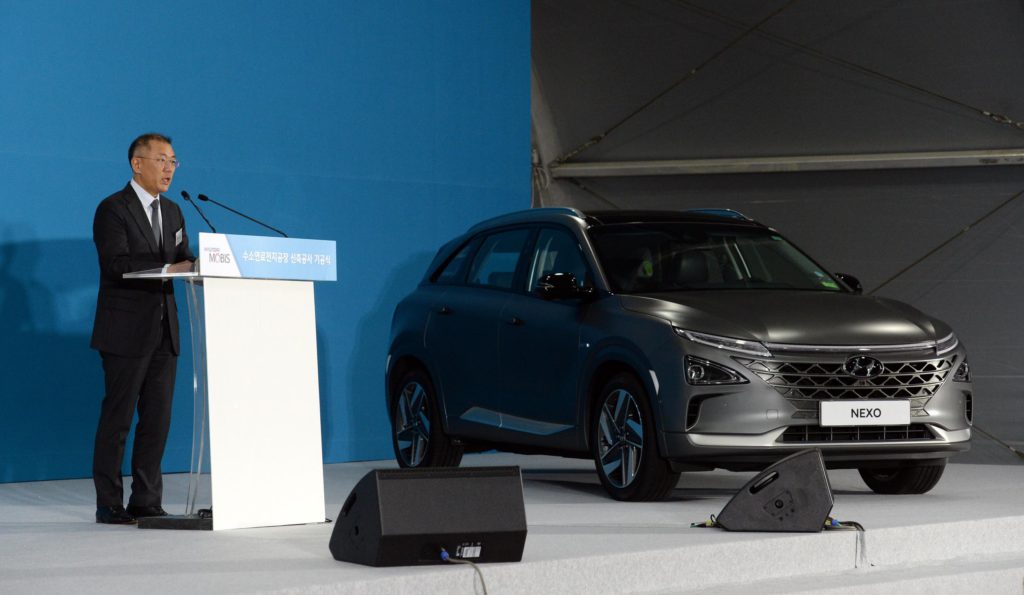Hyundai announces hydrogen roadmap and investment
11 December 2018

11 December 2018
Hyundai Motor Group, the parent company of the Hyundai and Kia brands, has announced its long-term roadmap ′FCEV Vision 2030′ plan, committing it to hydrogen fuel cell development.
Aligned with the roadmap, the group will drastically boost its annual fuel-cell systems production capacity to 700,000 units by 2030 and explore new business opportunities to supply its fuel-cell systems to other transportation manufacturers of automobiles, drones, vessels, rolling stocks and forklifts. The demand for fuel-cell systems from sectors beyond transportation such as power generation and storage systems is also expected to emerge quickly.
′Hyundai Motor Group, the global pioneer of the commercial production of FCEV, is taking a bold step forward to expedite the realisation of a hydrogen society,” said Euisun Chung, Executive Vice Chairman of Hyundai Motor Group. ′We will expand our role beyond the automotive transportation sector and play a pivotal role in global society’s transition to clean energy by helping make hydrogen an economically viable energy source. We are confident that hydrogen power will transcend the transportation sector and become a leading global economic success.’
As part of this push, the company will invest around €6 billion in the development of systems for multiple transport systems.
Hyundai has been one of the main companies developing hydrogen fuel cells as a form of mobility, alongside its electric vehicle program. In September, it announced that together with Swiss hydrogen company H2 Energy, it would launch the world’s first fleet of commercially made hydrogen-powered trucks.
The ′FCEV Vision 2030′ roadmap will see the investment go towards facility expansion, which is expected to create approximately 51,000 jobs by 2030. The Group plans to secure a 500,000-units-a–year FCEV production capacity by 2030, including passenger vehicles and commercial vehicles, in anticipation of high demand for global FCEVs expanding to around two million units a year within that timeframe.
As the first step to fulfil the ′FCEV Vision 2030′, HMG’s fuel-cell system manufacturing affiliate Hyundai Mobis Co. held a groundbreaking ceremony for its second fuel-cell system plant in Chungju, South Korea. The second factory will help Mobis increase annual fuel-cell system output to 40,000 units by 2022, up from the current 3,000 units.
The Group’s flagship auto-making affiliate Hyundai Motor earlier this year launched NEXO, its second-generation commercialised FCEV, improving upon the acclaimed Tucson FCEV introduced in 2013. NEXO was built on Hyundai’s first dedicated fuel-cell vehicle architecture, which provides many structural benefits including lighter weight, increased cabin space and improved fuel-cell system layout.
The Hydrogen Council, a global initiative of leading energy, transport and industry companies including Hyundai Motor, predicts the annual demand for hydrogen would increase tenfold by 2050, thereby creating diverse opportunities for sustainable economic growth.
Earlier this year, Toyota announced it is to build a new unit at its Honsha plant in Japan to accommodate the mass production of hydrogen fuel cell stacks.
The company’s Shimoyama factory will also gain a new line to manufacture high-pressure hydrogen tanks as the company looks to build on the technology already introduced in its Mirai model.